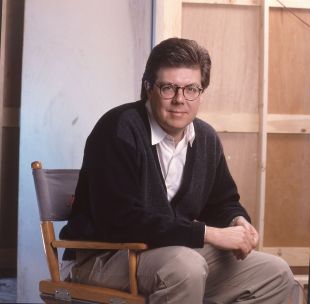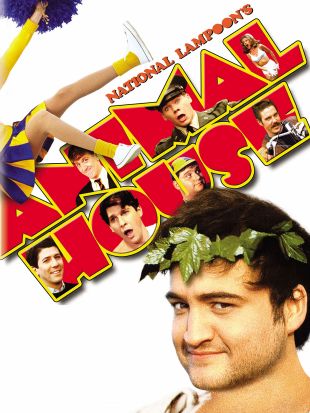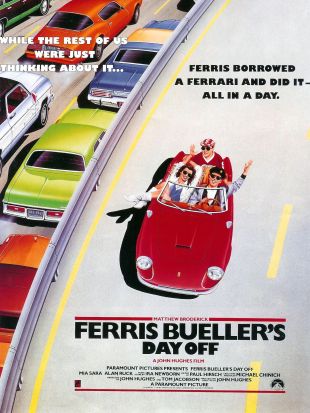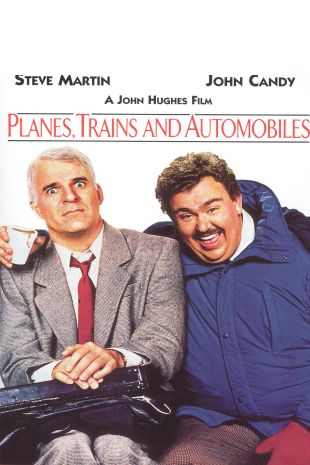Once dubbed the "philosopher of adolescence" by film critic and fellow Chicagoan Roger Ebert, John Hughes made his mark as the man most frequently associated with the 1980s teen angst genre. With his name attached in some form to such genre classics as Sixteen Candles, The Breakfast Club, Pretty in Pink, Ferris Bueller's Day Off, and Some Kind of Wonderful, Hughes was in large part responsible for defining the cinematic mood of a certain era. From Molly Ringwald's red hair to Ben Stein's monotonous "Bueller....Bueller," the characters and images in his films are still able to evoke a certain nostalgia in people who suffered through adolescence during the 1980s and remain as much of an embodiment of the decade's culture as shoulder pads and junk bonds.
Originally hailing from Lansing, MI, where he was born February 18, 1950, Hughes was 13 when he moved with his family to the Chicago suburbs. His adopted city would figure largely in his films, providing both a source of inspiration and a familiar setting for his stories. Hughes also found a good deal of inspiration in old Three Stooges movies, and hoped to one day bring his own spin on the Stooges' brand of slapstick to his own movies. His dreams of providing such slapstick for future generations were interrupted by a brief stint at Arizona State University (he dropped out during his junior year) and a subsequent job as an advertising copywriter, although he spent much of his spare time writing short stories, magazine articles, some unpublished novels, and jokes for stand-up comedians. In 1979, Hughes was made the editor of National Lampoon magazine, which at the time was basking in the warm glow of the success of joyfully ribald National Lampoon's Animal House (1978). The film's popularity led Hollywood to recruit various Lampoon writers to come up with movie ideas, which effectively provided Hughes with his first break as a professional screenwriter.
While penning scripts for National Lampoon's Class Reunion (1982), Mr. Mom (1983), and National Lampoon's Vacation (1983) -- the last of which was based on a short story he had written about his family's own disastrous vacation -- Hughes saw a number of early '80s teen films, including WarGames (1983) and Fast Times at Ridgemont High (1982), and decided that he had the ability to produce teen films of superior quality. In 1984, he entered the arena and emerged triumphant with his directorial debut, Sixteen Candles. Starring Molly Ringwald as its embattled teen heroine, the film was funny but never condescending in its treatment of the woes of Ringwald's protagonist, a girl whose 16th birthday is ignored as her family prepares for her older sister's wedding. Sixteen Candles launched the career of both its director and its star, and laid the foundation for the niche Hughes went on to build for himself as the foremost purveyor of '80s adolescent misery.
The following year, Hughes entered into a multiple-picture contract with Paramount and began producing films under his own banner, the John Hughes Company. He scored a double hit that year as the director, writer, and producer of Weird Science and The Breakfast Club, the latter of which was written before Sixteen Candles. The Breakfast Club proved to be a particular success for Hughes, an earnest, at times amiably dopey drama about a group of high school archetypes (the nerd, the jock, the social queen, the delinquent, the freak) finding common ground during a Saturday detention session; the film became a cult favorite for millions of teens. It also helped give rise to the Brat Pack, a moniker attached to a group of young actors -- Ringwald, Ally Sheedy, Anthony Michael Hall, Judd Nelson, Emilio Estevez, to name a few -- many of whom populated Hughes' films.
Hughes scored his next major triumph with Ferris Bueller's Day Off (1986), a film that was both an ode to Chicago and one of the most popular teen comedies of all time. Starring Matthew Broderick as its titular hero (and partially set at Glenbrook North High School, Hughes' alma mater), the film combined wise-assed fantasy and slapstick with a surprising amount of philosophical reflection, and this combination struck a resounding chord with critics and audiences alike. On the heels of Ferris, Hughes added two more classic teen dramas to his resumé, as the screenwriter and producer for Pretty In Pink (1986) and Some Kind of Wonderful (1987), both of which were directed by Howard Deutch, who would also collaborate with Hughes on The Great Outdoors (1988). He then shifted gears to make films that focused on adult characters, most notably the critically acclaimed farce Planes, Trains, and Automobiles (1987), which starred Steve Martin and John Candy, and Uncle Buck (1989), which featured Candy as the title character, a disorganized yet somehow endearing slob called upon to babysit for his three young nieces and nephew.
Hughes began the 1990s on an exceptionally positive note as the screenwriter and producer of Chris Columbus' Home Alone (1990), a hugely popular family comedy that launched the tumultuous career of Macaulay Culkin. However, many of Hughes' subsequent projects, which were largely family oriented, were nowhere near as successful; his only two directorial projects of the decade, Curly Sue (1991) and What Have I Written (1996), failed to make much of a financial or critical impact. Two films that Hughes scripted, Beethoven (1992) and 101 Dalmatians (1996), did provide additional plumes for the filmmaker's hat, but in general, his work throughout the 1990s was nowhere near as successful as that of the previous decade. Possibly in response to this, Hughes began the new century with a return to the teen film genre -- and an Illinois setting -- in the form of New Port South, a high school rebellion drama that featured a script by his son, James.
Tragically, Hughes died of a heart attack at age 59 in the late summer of 2009.



